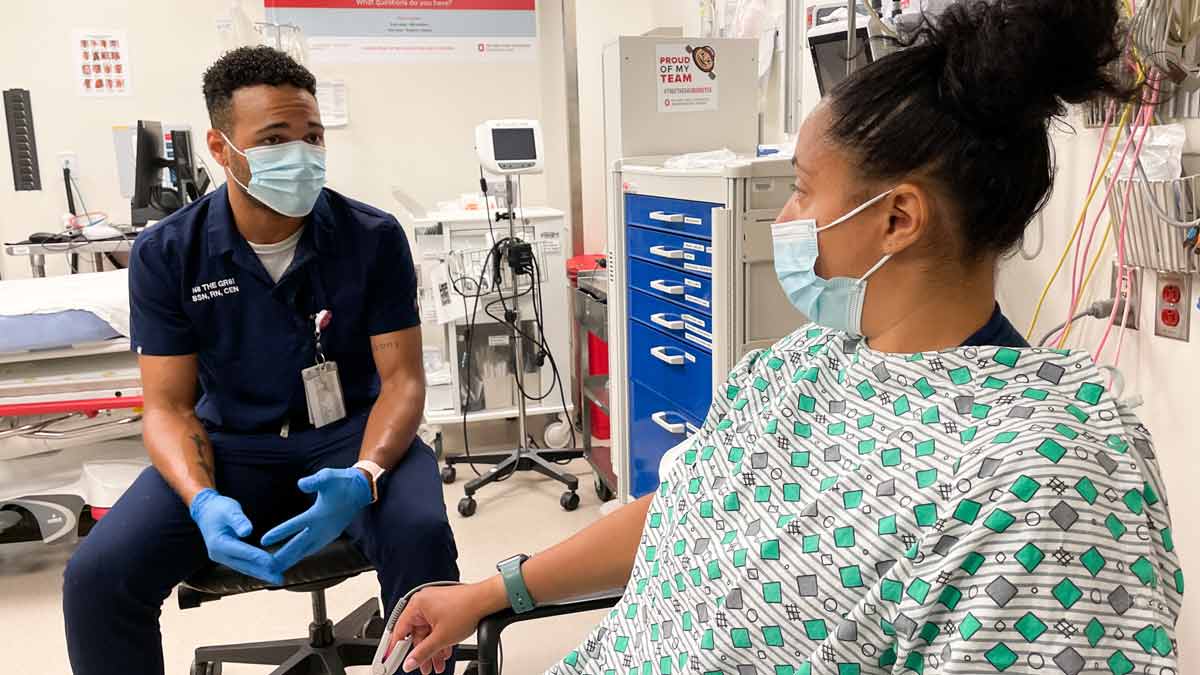Building trust with your doctor

It’s fair to say everyone wants to be treated with respect and genuine concern when seeking health care but, unfortunately, that doesn’t always happen when you’re a minority.
There’s a history of medical mistrust in minority communities in the United States due to systemic racism dating back centuries. These communities have been the unconsented targets of medical experimentation and research for the benefit of communities that were not their own. Some examples include:
- During the Tuskegee Study, the United States Public Health Service tracked a group of African American men in Alabama from 1932 to 1972 to learn more about syphilis and treatments. Approximately 400 of the 600 men in the study had syphilis, but when an effective medication became available in the 1940s, it wasn’t offered to the study participants. Local physicians were recruited not to treat the men. Left untreated, the disease spread to others and was often fatal.
- Holmesburg Prison in Philadelphia used inmates for medical experiments from the 1950s to 1970s in exchange for nominal compensation. Creams, lotions, perfume, detergent and chemical warfare agents were tested on hundreds of inmates.
- Henrietta Lacks was an African American woman who was undergoing treatment for cervical cancer in the 1950s when her cells were taken without her knowledge. The cells, called HeLa cells, have been used in countless research experiments that are the basis for many medical discoveries we see today.
The encouraging news is that, as a result of these studies, the federal government has implemented changes to prevent unethical practices in medical research. Additionally, more and more medical providers are adopting an anti-racism stance and taking a look at the unconscious biases that affect our understanding, actions and decisions.
And there are things you can do to advocate for yourself at the doctor’s office. They include:
- Be timely—Arrive early for your medical appointment to maximize the time you have with your doctor. This also helps your doctor stay on schedule.
- Write down symptoms and questions—The clinic environment can cause anxiety and nervousness, which can cause you to forget the main reason you came to the doctor. Make a list of important topics or questions on a piece of paper or in your phone.
- Bring medications to your appointment for review—Help your medical professional keep your chart current by having your medications with you during your appointment.
- Put your phone away—Unless you’re using your cellphone to provide information pertinent to your visit, put it away. Make eye contact with your doctor and engage in conversation about your health. Better engagement means more attention to detail and a better chance of finding a solution to your problem.
It’s important that you feel comfortable with your doctor and that you work to develop a relationship built on trust. Be honest with your health care provider about your expectations, fears and goals. Productive communication supports better compliance with treatment plans.
If you feel you’ve been the victim of discrimination, trust your gut. Consider raising this concern with your health care provider to clear up any potential misunderstandings. If you feel that you’re still being discriminated against, consider switching providers. If you’re strongly convinced that a covert or blatant act of discrimination has taken place, contact the clinic manager and discuss the situation. They can help you decide what your options are, given your specific situation.
Sophia Tolliver is a primary care physician at The Ohio State University Wexner Medical Center and an assistant professor at The Ohio State University College of Medicine.




